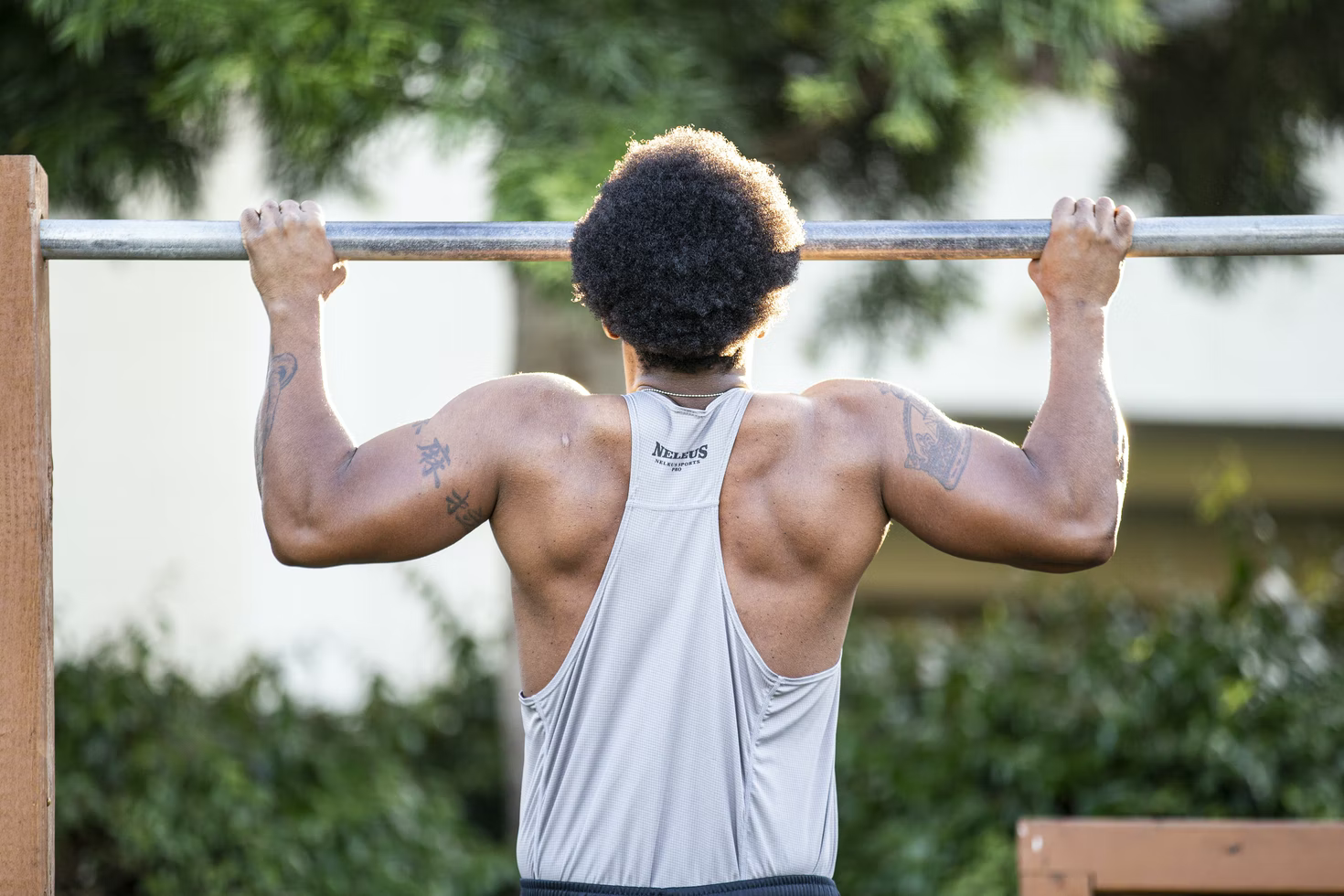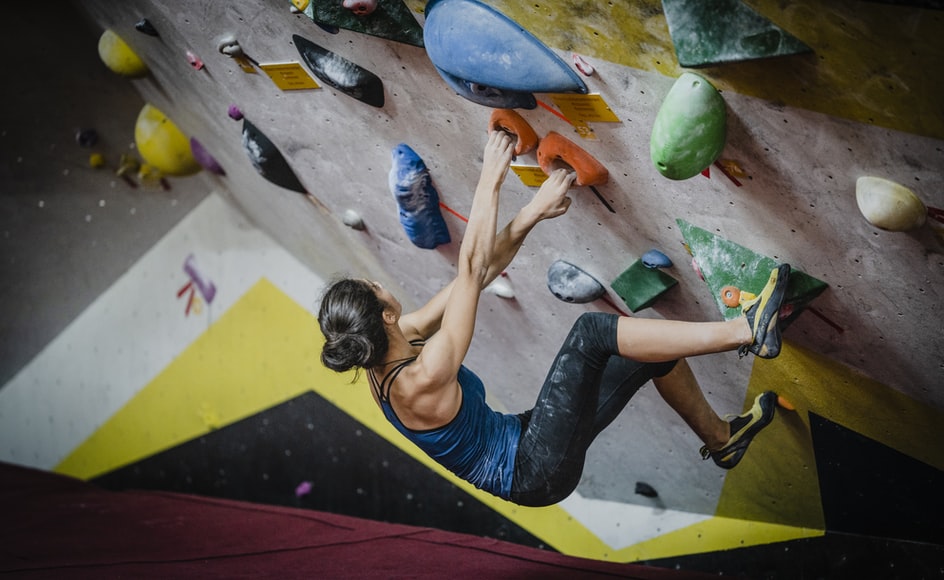Ask any athlete, and they will tell you that performance profiling is essential in any sport.
This assessment method, developed by clinical psychologist Richard Butler, improves an athlete's self-awareness about important characteristics that contribute to a successful performance.
Athletes usually use performance profiling to help them develop a specific training schedule for areas they need to improve on.
Recently a newly developed climbing test (performance profiling) has taken the climbing community by storm.
Many athletes have been doing the 9c strength test to determine their strength and how hard they can climb.
If you're curious about the 9c strength test, how it works, and how you take it, then keep on reading!
What Is The 9c Strength Test?

Developed in 2020 by Norwegian climbers, Stian Christopherson and Martin Mobraten, the 9c strength test is a fairly straightforward battery test that measures strength in 4 different areas.
It aims to determine how strong you are and how hard you should be climbing.
This test was designed to be easy, not requiring a variety of special equipment, so anyone can do it at their training center or even at home, provided that they have the right tools.
Grading System

Before we get to the nitty-gritty of the test, let's talk about the grading system used in the 9c strength test.
The test uses a point system to help you determine your climbing grade. The maximum number of points you can get on this test is 40, and the lowest is one. One is given the equivalent of 6a in the French scale, while 40 is equivalent to 9c.
Points: 40=9c // 39=9b+ // 38=9b // 37=9b // 36=9a+ // 35=9a+ // 34=9a // 33=9a // 32=8c+ // 31=8c+ // 30=8c // 29=8c // 28=8b+ // 27=8b+ // 26=8b // 25=8b // 24=8a+ // 23=8a+ // 22=8a // 21=8a // 20=7c+ // 19=7c+ // 18=7c // 17=7c // 16=7b+ // 15=7b+ // 14=7b // 13=7b // 12=7a+ // 11=7a+ // 10=7a // 9=7a // 8=6c+ // 7=6c+ // 6=6c // 5=6c // 4=6b // 3=6b // 2=6a // 1=6a //
Exercise 1: Finger Strength Test
The very first exercise tests the maximum weight you can hang, in relation to the strength of your fingers, from a 20mm edge/crimp.
You get one point if you successfully hang from there with 100% of your body weight for 5 seconds.
You get two points if you think you can do it while adding 10% more to your body weight. Repeat the test by adding 10% more, and you get three points.
Continue with the exercise until you feel that you've reached your maximum weight limit, and record your score!
Exercise 1/4: Max finger strength; Approximately 20 mm crimp for 5 seconds
- 1 Point = 100% (body-weight)
- 2 Points = 110%
- 3 Points = 120%
- 4 Points = 130 %
- 5 Points = 140 %
- 6 Points = 150%
- 7 Points = 160%
- 8 Points = 180%
- 9 Points = 200%
- 10 Points = 220%
Exercise 2: Weighted Pull-Up (One Rep)
Next on the list is the max pull-up. So one rep with just your body weight is already equivalent to one point.
If you want to score more points, then simply add 10% to your total body weight. Again, keep repeating until you feel that you've reached your maximum weight limit, and don’t forget to record your score!
Exercise 2/4: Max pull-up (one rep)
- 1 Point = 100% (body-weight)
- 2 Points = 110%
- 3 Points = 120%
- 4 Points = 130 %
- 5 Points = 140 %
- 6 Points = 150%
- 7 Points = 160%
- 8 Points = 180%
- 9 Points = 200%
- 10 Points = 220%
Exercise 3: Core Strength Exercise
You can do the core strength exercise in two ways.
You can start with an L-sit (bent knees) for up to 30 seconds, giving you a maximum point of three points, or you can choose to do a regular L-sit for up to 20 seconds, which gives you a maximum point of six points.
If you're feeling a bit more confident about your core strength, then try doing a front lever for as long as 30 seconds, and you might score yourself ten points.
Exercise 3/4: Core strength
- 1 Point = 10 sec L-sit (bend knees)
- 2 Points = 20 sec L-sit (bend knees)
- 3 Points = 30 sec L-sit (bend knees)
- 4 Points = 10 sec L-sit
- 5 Points = 15 sec L-sit
- 6 Points = 20 sec L-sit
- 7 Points = 5 sec front lever
- 8 Points = 10 sec front lever
- 9 Points = 20 sec front lever
- 10 Points = 30 sec front lever
Exercise 4: Hang From A Bar
The last exercise, but definitely not the least, is simply doing a dead hang from a bar for as long as possible.
A minute would give you two points, and a full six minutes would get you a score of ten.
Don't be fooled by the simplicity of this exercise! If you watch the Who's Who of the YouTube climbing community, you'll notice that most of them described this last test as the most painful one.
With that in mind, take care when you finally do this last exercise, know your limit, and know when to stop.
Exercise 4/4: Hang from bar
- 1 Point = 30 sec
- 2 Points = 1 min
- 3 Points = 1,5 min
- 4 Points = 2 min
- 5 Points = 2,5 min
- 6 Points = 3 min
- 7 Points = 3,5 min
- 8 Points = 4 min
- 9 Points = 5 min
- 10 Points = 6 min
Is The 9c Strength Test Accurate?

There are varying opinions about the 9c strength test's accuracy, like most newly created tests.
If you lurk on online sports forums, you'll come across mixed reviews of climbers about the accuracy of the test.
Some agree that the test gives a pretty good picture of a climber's current abilities.
In contrast, others find the grading system a little out of proportion and unrealistic.
According to the big boys and girls of the YouTube Climbing community[1], the 9c strength test is a "good" test that can be used to design future training paths.
However, there is a consensus that the test still has room for improvement.
Either way, the 9c strength test is a great way to measure your current climbing abilities.
If you're serious about improving at the sport, the test can give you important information about what areas of your climbing need improvement.
Conclusion
There is a reason (or a lot of reasons) why people in the climbing community rave about the 9c strength test.
Some would tell you that they like the simplicity and straightforwardness of the test, and some would say that the test results give them a clear picture of which area of strength they need to improve.
One point that they all seem to agree on is how accurate the scoring system translates to the sport climbing grade you (hypothetically) should be strong enough to climb.
Just keep in mind that the 9c strength test, or any test for that matter, should not be considered the end-all, be-all of performance profiling for climbing.
So, if you're curious about your current climbing abilities and you're looking to improve your skills, why don't you give the 9c strength test a try? See you at the ledge!









